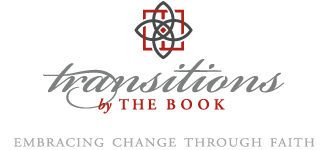Janet and I were watching an engaging movie earlier this week and the plot was to discover a form of the fountain of youth. It was a very entertaining film and although it became more and more unbelievable, it held our interest. Just fiction – the kind of film that suspends reality and causes you to get lost in the story. Clearly, the movie reminded me of the Indiana Jones franchise with Harrison Ford. Or, perhaps the National Treasure franchise with Nicholas Cage. By the way, the name of the movie was called “The Fountain of Youth” and is an original movie on Apple TV. If you can’t tell, we really enjoyed it!
Anyway, as the story line progressed, one of the clues to the next step in the journey was to be found in what was called the “Wicked” Bible. Apparently, according to the story line, in 1631, there was a misprint in a King James version of the Bible that resulted in the one of the Ten Commandments being mistakenly printed. Instead of saying, “Thou shalt not commit adultery” it said, “Thou shalt commit adultery.” That’s how it got its name of the “Wicked” Bible. I’ve never heard of this and I assumed that it was part of the fictional journey they were on.
However, after the film ended, I decided to research this and, much to my surprise, it appears that there really was a misprint and the “Wicked” Bible is a real thing! Who knew!
Now I have heard of other printing errors in Bibles throughout the years. As I said, I just thought it was something made up for the movie. How odd that in the midst of all this fiction, part of the film was grounded in reality. It turns out that the printers, Barker and Martin, had a disgruntled employee who removed the word “not” to get even with his employers. Barker and Martin actually were tried in a superior court that handled important cases that were deemed too critical to go through the normal channels.
Aside from the error in Exodus 20:14, the verse on the commandment to not commit adultery, there was another serious error in the book of Deuteronomy. In Deuteronomy 5:24, the “Wicked” Bible, also sometimes referred to as the “Evil” Bible, replaces the work “greatnesse” with a word that people found rather offensive – “great-asse.” The printers of this King James Bible were fined 300 pounds and lost their license as printers. King Charles I ordered all copies of the Wicked Bible found and destroyed. In fact, the Archbishop of Canterbury observed the destruction of these books with errors. Ten, or at most, eleven copies of the Bibles with errors survived and are now highly sought after – fetching unbelievable prices in the market.
There are also many other instances of misprints. In 1612, the so-called “Printers” Bible, had some copies that had in error in Psalm 119:161. Those copies read, “Printers have persecuted me without a cause” rather than “Princes have persecuted me…” And, in the “Affinity” Bible, from 1927, there is a line that reads, “A man may not not marry his grandmother’s wife…”
When I was in seminary, the most famous example of a misprint that we learned about was a King James Bible that had a problem with Ruth 3:15. This particular copy of the Bible was referred to as the “She” Bible. In fact, it may not even be an error but a difference in the translation of the verse from the Hebrew. It is thought that Boaz went into the city – the verse usually reads, “and he went into the city…” However, it seems that some translators think the verse really referred to Ruth going into the city and the verse reads, “and she went into the city.” There are still a few of these “She” Bibles around – I have actually seen one of them. It should be noted that there are more than 780,000 words in the King James Bible, with more than 3,000,000 characters and there is still debate over one character. It is “he” or “she?”
Our verse for tonight is from the New Testament, from the apostle Peter and his first epistle. Peter tells us, in 1 Peter 1:21, “For no prophecy was ever produced by the will of man, but men spoke from God as they were carried along by the Holy Spirit.” My encouragement this evening is that we believe that the Bible was divinely inspired by God and transmitted to men through the agency of the Holy Spirit. That means that the message to us was pure and unadulterated, but humans make mistakes – not God – and just because there are several printing errors here and there, it does not diminish the inspired word of God. If in doubt, ask the Holy Spirit for clarity in your reading of the Bible. I’m sure that you won’t be disappointed. Have a great day in the Lord, grace and peace…
